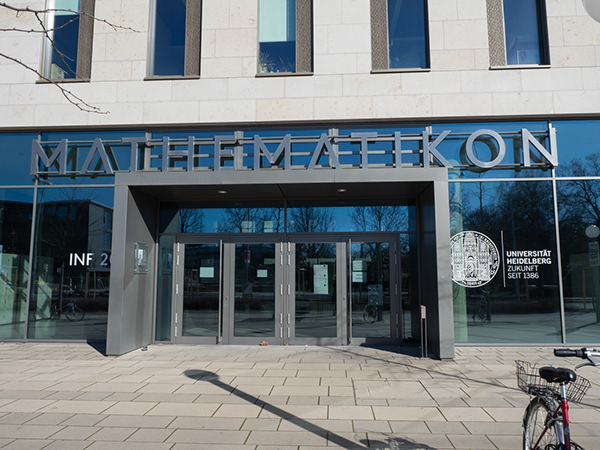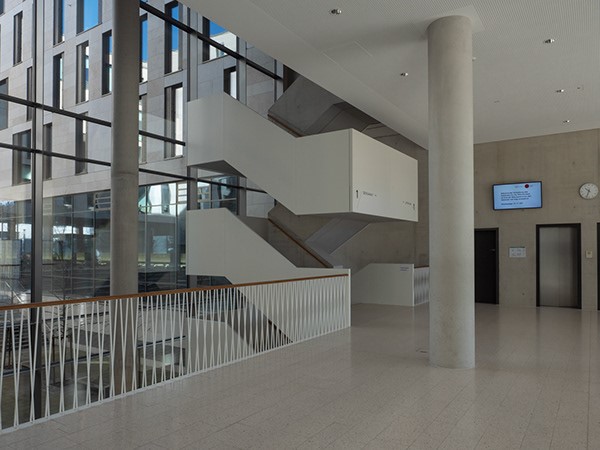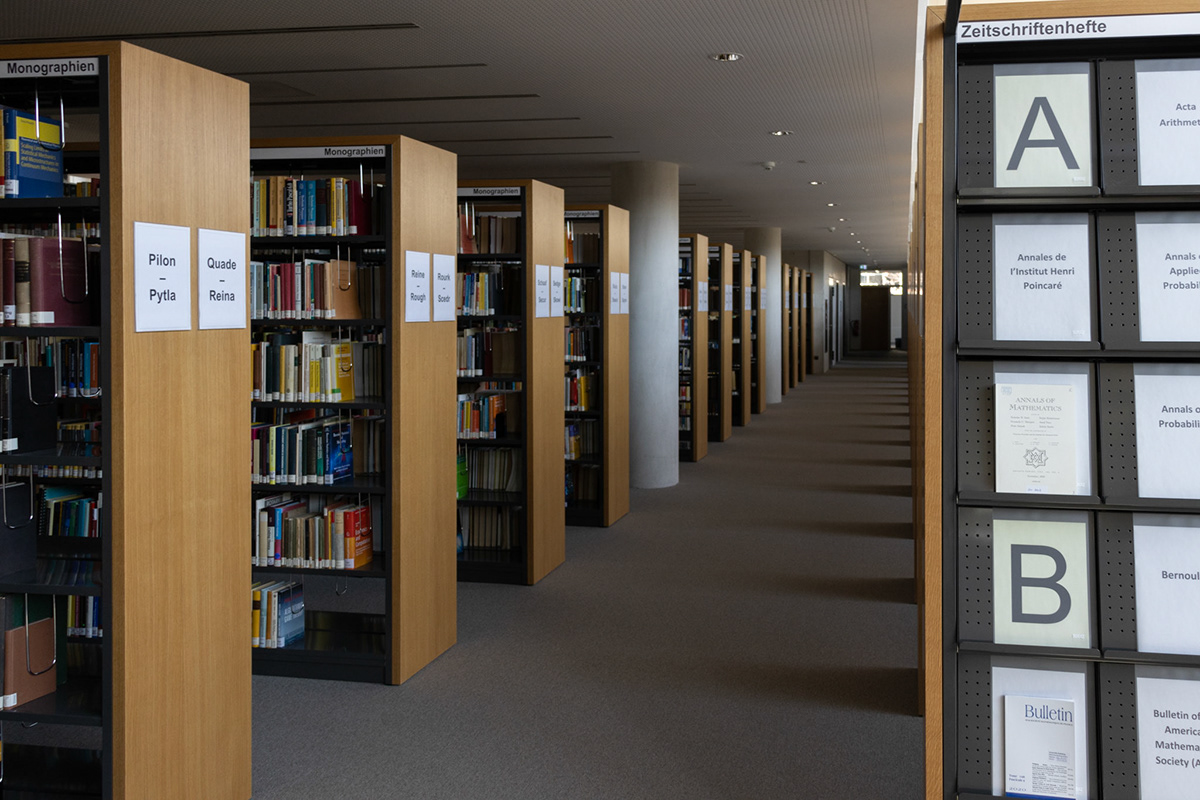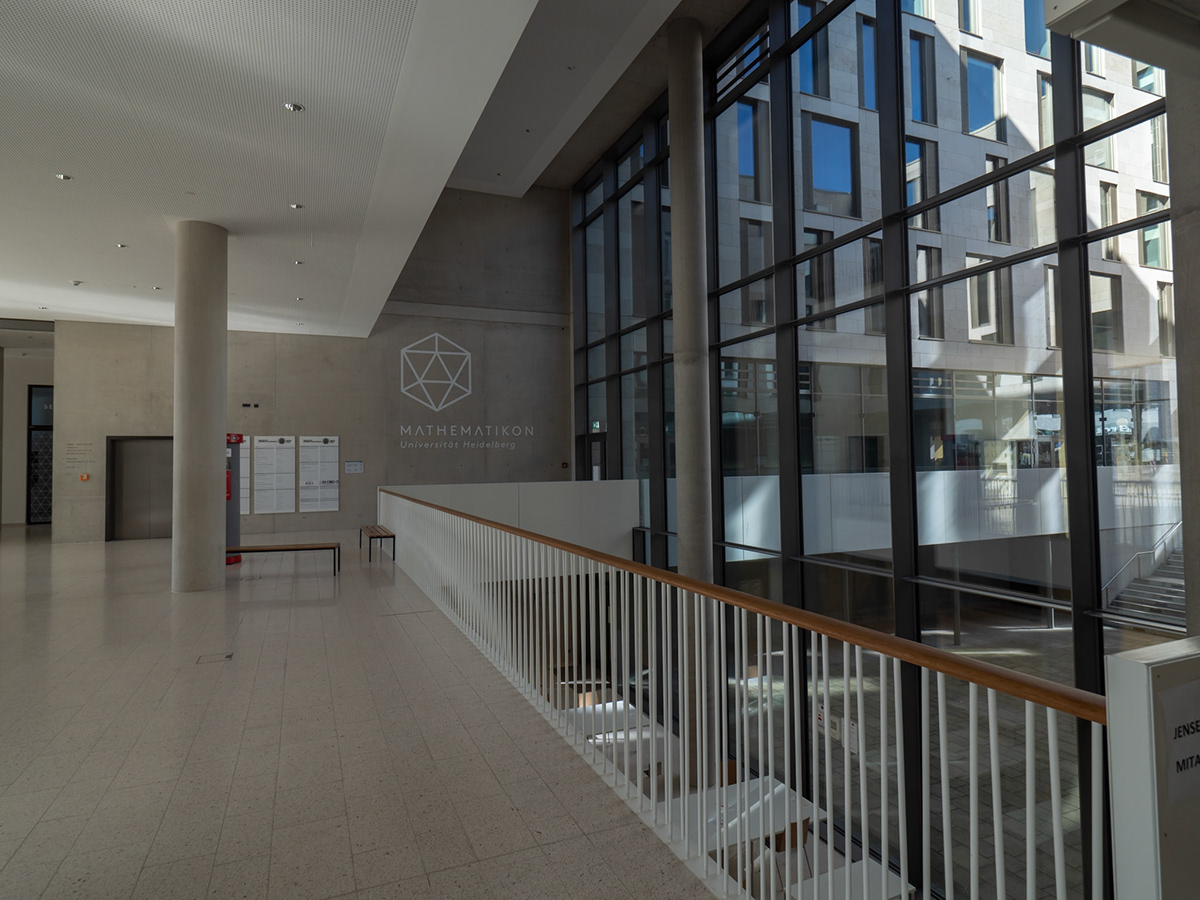
Master Programs Mathematics
The Master Mathematics is designed as a 4 semester program leading to the academic degree Master of Science (M.Sc.). The Master of Education program in Mathematics leads to the academic degree Master of Education
(M.Ed.). This degree is the prerequisite profile and qualification for teaching Mathematics at the middle and high school level. The program is organized jointly by Heidelberg University and the Heidelberg School of Education (HSE). The university is responsible for the subject degree.
Structure of the master programs in Mathematics
Master Mathematics
| Degree | Master of Science (M. Sc.) |
| Type of study | Consecutive |
| Begin of study | Winter and summer semester |
| Standard period of study | 4 semesters |
| Language(s) | German, some English |
| Application Procedure | Access restriction |
Master of Education Mathematics
| Degree | Master of Education (M. Ed.) |
| Type of study | Consecutive |
| Begin of study | Winter and summer semester |
| Standard period of study | 4 semesters |
| Language(s) | German |
Master of Education Supplementary Subject Mathematics
| Degree | Master of Education Supplementary Subject |
| Type of study | Hybrid of undergraduate and consecutive |
| Begin of study | Winter semester only |
| Standard period of study | 4 semesters |
| Language(s) | German |
Current Degree Regulations, Admission Regulations & Course Handbook Master Mathematics
Version of October 5th, 2022
Current Degree Regulations, Admission Regulations & Course Handbooks MEd Mathematics
Version of September 29th, 2021
Version of September 29th, 2021
Version of October 12th, 2017
Version of October 12th, 2017
Version of February, 2022 (Degree Regulations of September 29th, 2021)
Current Degree Regulations, Admission Regulations & Course Handbooks MEd Supplementary Subject Mathematics
Version of September 29th, 2021
Version of May 8th, 2019
Version of September 29th, 2021
Master Mathematics
To complete the master's program, you need 120 credit points (Leistungspunkte or LP). Of these, 68 CP are allocated to the core courses in Mathematics (subject studies), 16 CP to an area of application, 6 CP to interdisciplinary skills (Fachübergreifende Kompetenzen or FÜK) and 30 CP to the bachelor's thesis.
Subject studies
The Mathematics content of the program is organized around the research interests of the faculty in the following areas:
- Algebra and arithmetic
- Applied analysis and modeling
- Geometry and topology
- Complex Analysis, automorphic forms, and mathematical physics
- Numerical analysis and optimization
- Statistics and Probability
Courses within each area are structured into sequences consisting of basic modules, advanced modules, and specialization modules.
- Basic modules (8CP) introduce a subfield based on the undergraduate education.
- Advanced modules (8CP) deepen the material of a subfield building on a basic module.
- Specialization modules (4-8CP) introduce special aspects of a subfield, usually closely related to current research.
Within these modules there are different courses, which are indicated in the module handbook. Several courses may be taken per module. The assignment of individual courses to a specific module can be recognized by the module code.
The subject study is structurally divided into compulsory modules, compulsory elective modules and elective modules.
- As compulsory modules, two seminars, the master thesis and the master seminar must be completed.
- As compulsory elective modules, one module in Pure Mathematics and one in Applied Mathematics (8CP each) must be completed. Basic and advanced modules can be chosen as compulsory elective modules. The areas of Algebra and Arithmetic, Geometry and Topology as well as Complex Analysis, Automorphic Forms and Mathematical Physics are assigned to Pure Mathematics. The areas of Applied Analysis and Modeling, Numerics and Optimization, and Statistics and Probability are assigned to Applied Mathematics.
- The elective modules with a total of 32CP can be chosen arbitrarily from the basic, advanced and specialization modules, as well as supplementary modules. To broaden the basic knowledge, up to two elective modules can be chosen from the range of the Bachelor's program in Mathematics, as far as these have not been included in the Bachelor's examination. Only modules from the compulsory elective area 1 to 3 are permitted. All other modules of the bachelor's degree program in mathematics cannot be used to broaden basic knowledge.
Application areas
Fields admissible as application area include:
- Computer Science
- Physics
- Astronomy
- Biology
- Chemistry
- Economy
- Philosophy
Other subjects can be approved as application area upon request. Students may also request to replace the application area by modules from the Master program mathematics amounting to 16 CP.
Interdisciplinary Competencies
Admissible courses and activities include:
- Mathematical colloquium
- Software internship
- Internship in industry
- Summer Schools
- Exchange program
- Teaching assistant training
- FÜK courses offered at the university
Master Thesis
The Master thesis is a separate module subject to examination that concludes the scientific training. The purpose of the thesis is for the candidate to demonstrate their ability to work independently, and in a predetermined time-frame, on a mathematical problem with scientific methods. To register for the Master thesis, you need to provide proof of completion of at least 45 CP. Considering that preparatory work and evaluation of the thesis may take extra time, the faculty recommends that you look pro-actively and in a timely fashion for a thesis advisor and a thesis topic. If the Master thesis module is graded with 5,0, you may write another thesis on a different topic. Rewriting of a thesis on the same topic is not possible.
Master of Education Mathematics
The modules of the mathematics specific program include 18 CP subject specific scientific work and 13 CP subject specific didactics. The Master thesis is an optional module that is not included in the previously mentioned CPs. The combined module Geometrie und Unterricht
consists of two parts, the lecture course Introduction to geometry
and the subject specific didactics seminar
. A further combined module is the Didactic reduction of a mathematical topic
, which also consists of two parts, the lecture A mathematical topic
and the seminar didactic reduction
.
Further information regarding the program can be found in the General section of the course handbook. The modules of the mathematics program are described in the special section of the course handbook. These handbooks also include sample course selections when starting in either the Winter or the Summer semester. Because of the great diversity of possible combinations of subjects, we highly recommend that you take advantage of the student advisory services in order to develop a course selection plan tailored to your individual circumstances.
General information regarding the Master of Education can be found on the pages of the central university administration.
Master of Education Supplementary Subject Mathematics
Information to follow soon






